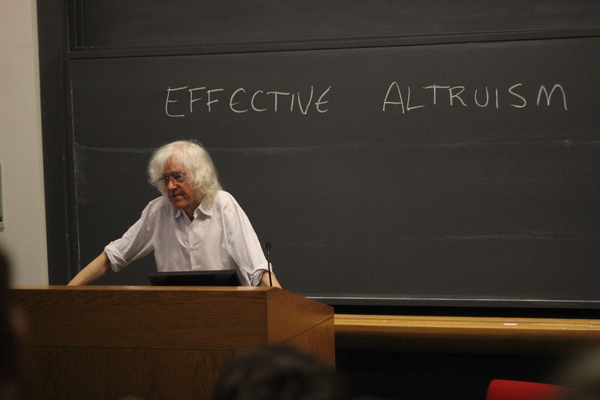Fonte: On What Matters: Volume One (2011), p. 419
Derek Parfit: Frases em inglês
“Though everything is identical with itself, only I am me.”
Fonte: Reasons and Persons (1984), p. 25
Fonte: Reasons and Persons (1984), p. 281
Contexto: Is the truth depressing? Some may find it so. But I find it liberating, and consoling. When I believed that my existence was a further fact, I seemed imprisoned in myself. My life seemed like a glass tunnel, through which I was moving faster every year, and at the end of which there was darkness. When I changed my view, the walls of my glass tunnel disappeared. I now live in the open air. There is still a difference between my life and the lives of other people. But the difference is less. I am less concerned about the rest of my own life, and more concerned about the lives of others.
“We are paternalists when we make someone act in his own interests.”
Fonte: Reasons and Persons (1984), p. 321
Fonte: On What Matters: Volume One (2011), p. 419
Fonte: Derek Parfit, ‘Reasons and Motivation’, Proceedings of the Aristotelian Society, supp. vol. 71 (1997), p. 121
“Even if moral truths cannot affect people, they can still be truths.”
Fonte: Derek Parfit, ‘Reasons and Motivation’, Proceedings of the Aristotelian Society, supp. vol. 71 (1997), p. 111
Fonte: Derek Parfit, ‘Innumerate Ethics’, Philosophy and Public Affairs, vol. 7, no. 4 (Summer, 1978), p. 301
But it’s no earthly use just saying it isn’t done. If there’s a reason why it isn’t done, give the reason—if there’s no reason, don’t attempt to stop me doing it. All other things being equal, the mere fact that something “isn’t done” is in itself an excellent reason for doing it.
p.101
Reasons and Persons (1984)
Fonte: Derek Parfit, ‘An Interview with Derek Parfit’, Cogito, Vol. 9, No. 2 (August, 1995), p. 118
